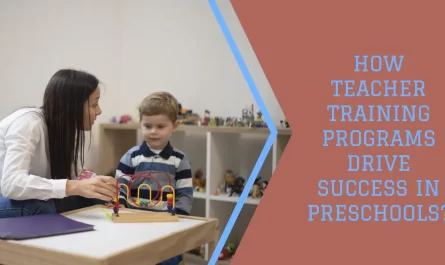Being a parent comes with a lot of responsibilities and demands; you need to be here, there and everywhere. I tip my hat off to every single parent, including my own. As one of four teens, I can only imagine how difficult it was. As a parent, you need to consistently show your children how much you love them. As they are in their most vulnerable and impressionable years, it all does count now.
Maintaining a healthy and loving relationship with your children does come with challenges. You might have spent days wondering, Am I doing this right? Am I a good parent? But I believe if you are listening to your child, teaching them how to be open and doing the same, then you are doing a great job.
If you feel like you could be doing more so your children grow up with a secure attachment style, here are a few ways you can show up for your teens that will pay off in the long run and help you get even closer to your children because that’s all you want at the end of the day: to be that safe and loving space for them, or, a better way of saying it, you want to be home for them, where they can be there full authentic selves and build healthy emotional responses.
Here are seven time-tested ways to show up for your teens and make a positive impact on their lives forever:
Listen, I Mean Really Listen
When your child, no matter what age, is trying to communicate with you, especially during times when emotions are positive and negative, really listen to what they have to say. Set your phone aside, pause the TV and engage. I believe that if you make that effort and really seem interested in what your teens have to say, then they are likely to carry that on in the future and communicate effectively in the future.
Plus, it just feels good. Try and think of it: would you like to be ignored or not have full attention if you need to confide or tell them something if it makes you happy? Although you might think your teens will forget, a lot of their responses and actions stay with them. Plus, it’s just another perfect way to bond and stay connected.
Monkey See Monkey
Teens copy what they see and we’ve seen it a million times. They might think they are their selves, but in most cases, if you are doing specific things, they are most likely going to copy them. For example, if you are quite a lazy person when you get home from work or, let’s say, the complete opposite, if you clean up after them all the time and they aren’t being shown or told what to do more often than not, they will not look after themselves in the ways they should.
It’s important to leave them with good morals, standards and tools to look after themselves, especially as they are around the corner from adulthood, which is more crucial than ever. Especially if your teen is looking to study abroad or across the country, they need these skills.
Use Humour
Utilising humour in parenting can be a great way to show up for your teens. When they might be upset or stressed, especially during times like exam season, you can try to turn their day around with a bit of humour, whether it’s watching their favourite film or sending them a bit of money to get themselves a treat.
Humour can also be a powerful way to teach your teens some important life lessons, such as how to handle stress and conflict and to look for silver linings. They do say laughter is the best medicine in situations where you try to make the best out of every situation and this is such a good trait to pass on to your children.
Try reading the cues, figuring out what makes them laugh and channelling it. I would like to think I got my humour from my parents so it does help if you’re already funny but even just making the effort to make light of a situation after reading the room will go a long way.
Express Gratitude and Appreciation
It’s easy to say to your teens—of course, I love you—but is that expressed verbally and physically? Reassurance is needed in all types of relationships. It’s crucial to express your gratitude and appreciation for your children. This will help them build healthy friendships and companionship in places if they have decided to study abroad or move to college far from home.
Try and think about how hard you thought your life was back, and though the responsibilities are very different, their emotions and stressors are still valid. Don’t diminish their feelings just because they are not old enough to be stressed about other things.
Instead, listen, sympathise and reassure by expressing your gratitude. This will help build a strong bond with your children and it will help them and encourage them to do their best.
You can show your love for your children by expressing words of affirmation, giving them compliments, doing little things like a card on Valentine’s Day or buying their favourite treat for after school, showing a genuine interest and support in their activities and being active listeners.
Physical Connection
Giving a hug and kiss is a powerful way to show that you care for your teenagers and while they might not accept it, the thought counts. A long hug can be a huge emotional release for some teens, especially during stressful times in education. There have been times I’ve been down but then my mom cuddles me and those things seem to not feel as bad.
Physical connection can make you feel closer to your children, show them your forgiveness theme, love them, and miss them, and it’s just something children need.
There are several advantages to having physical contact for both parents and children. It makes us feel good about ourselves and our relationships by lowering stress levels and increasing endorphins in the brain. Furthermore, as we express our emotions to our children nonverbally, it can strengthen our sense of bonding with them.
Find a Hobby To Share
Engaging in activities that you both love is a terrific way to strengthen your bond, create a stronger relationship and also build some skills they can carry with them through education. Anything from taking a stroll to playing sports to simply watching a movie together can be done. It will not only enable you to spend valuable time together, but it will also assist in making enduring memories.
If you find yourself struggling to find some common ground or a shared likeable activity, try doing something they like and roll with the punches. While this is a bonding opportunity, you will understand your child and their interests more, but you will also be showing your appreciation and gratitude by trying something new just for them.
Talk Openly About Feelings
It can be difficult to talk honestly about your feelings and emotions, particularly if you don’t feel comfortable doing so. However, it is a crucial component of growth and personal development. You can improve your understanding of yourself and your relationships with your children by being open with them, as long as it’s within reason.
Being so honest with your children about your feelings and emotions can ease tension, enhance communication, and serve as an example of self-awareness. It can also give you a way to express uncomfortable or challenging conflicts that you might be having. You and your teens can start processing things more positively if you discuss your ideas and feelings in a secure environment.
This is extremely important in educational systems because if they are struggling with understanding specific analogies and so on, then they have the confidence to approach lecturers to discuss things in more detail. This works for all kinds of situations that teens are met with while facing the stresses of education.
Be There
It is important to be there to hold their hand sometimes, even if you think they are all grown up and old enough to do specific things, but even with age, you need support. For example, when I go to my local dentist in Solihull, even at my age, I need my mother with me because I need that moral support and that feeling of safety. So if your child is asking you to be with them during a specific time, it’s best to go with them.
Another example might be that I usually get afraid to go to new places on my own and it just takes the pressure and anxiety away if I’m with someone. The times after that are fine and I can go solo. You can support your teen by going with them to certain things, whether they are starting a new sport or heading off to a new school for the first week, helping them adjust to their new lifestyle. Just initially being with them gives them a chance to build their confidence and make a huge difference.
I also don’t believe that you should throw your children into the deep end of everything, to touch on the example I had of being afraid to go to new places and needing someone there with me. This is something my mother didn’t have compassion for and said, “You’ll be fine,” but the more I did it, the anxiety still didn’t go away and although I can do it more now, at those ages where your emotions are all over the place, just having someone to refer to can help build their confidence and not necessarily make them dependent or overly reliant on others.
Final Thoughts
Parenting is a constant learning process filled with uncertainties. Yet, at its core, it’s about showing up for your teens in ways that resonate with them. It’s about genuine efforts, consistent gestures, and understanding their needs.
By listening attentively, setting positive examples, infusing humour, expressing gratitude, and showing physical affection, parents can forge resilient bonds. Engaging in shared hobbies and openly discussing feelings further strengthens this connection.
Being present means more than physical presence; it’s about offering support and guidance during pivotal moments. It’s about striking a balance between nurturing independence and providing necessary support.
In essence, showing up for your teens daily isn’t about perfection but sincere efforts, adaptability, and an unwavering commitment to being the haven they need as they navigate life’s complexities. It’s about creating a space where they feel seen, heard, and loved.



